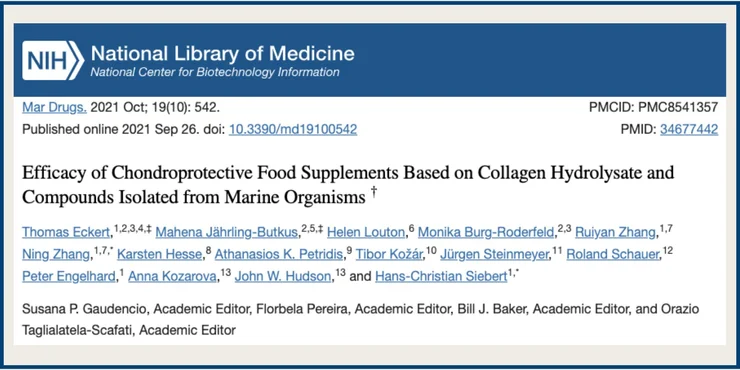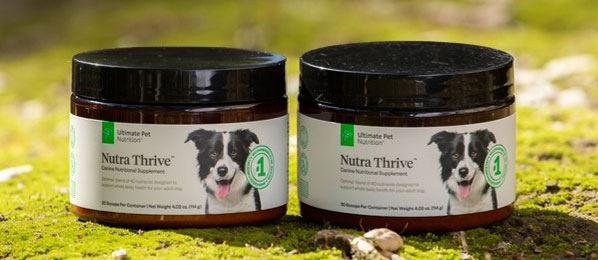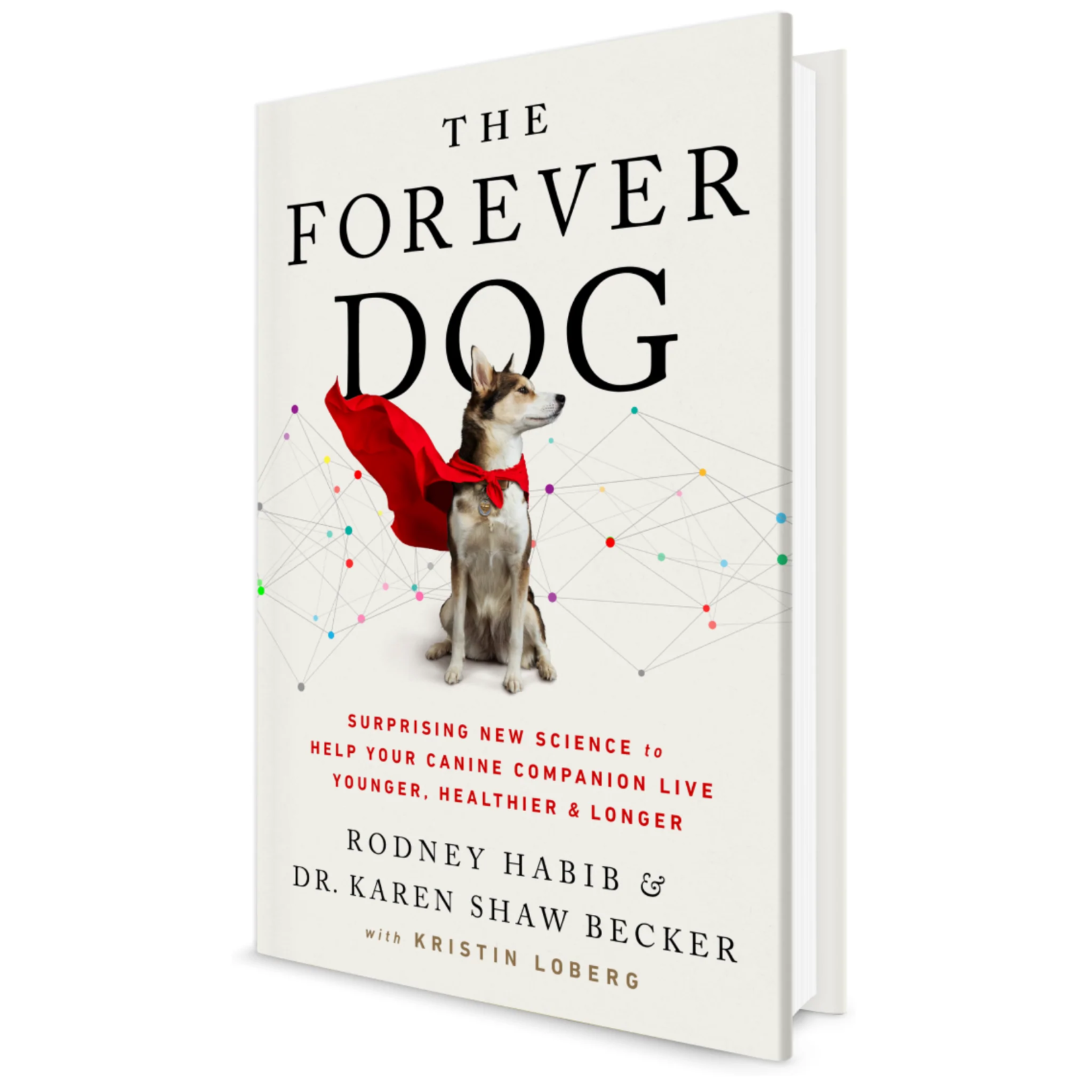Collagen for Dogs: Here Are 6 Things You Need to Know for Your Furry Friend
Category:Health,NutritionWritten by Caroline Nicks, NASM CPT
Updated on July 1, 2024
Collagen is not only the most abundant protein in humans—it’s the most abundant protein in dogs, too.
Often dubbed as the “glue” that holds the body together, collagen makes up one-third of the protein in your furry friend. Thus, it’s crucial to maintain adequate levels to keep your dog feeling healthy and pain-free.
But, how much collagen should you give your dog, and when should you begin supplementation? Read on to get your most pressing questions answered.
The Importance of Collagen for Dogs
Essentially, collagen is just a fancy word for protein. A protein that’s found in your dog’s skin, fur, bones, tendons, cartilage, gut lining, and more.
Your dog naturally produces collagen on his own; however, his collagen levels diminish with age. Although research has yet to discover how much collagen dogs lose each year, we do know that humans lose approximately 1% of their collagen each year (1).
So, it’s safe to assume that your dog is losing 1%—if not more—of his collagen every year. This steep decline in collagen can lead to aching joints, upset digestion, and a dull coat.
Native Note: Always consult with your veterinarian before adding a supplement to your dog’s routine.
The Top 3 Benefits of Collagen for Dogs
Now that you know collagen is just as important for your furry sidekick as it is for you, let’s address the top 3 way collagen can support your dog’s health…
1. Collagen for Your Dog’s Bone and Joint Health
With collagen loss comes bone loss and cartilage loss. And with cartilage loss often comes osteoarthritis…
Osteoarthritis is one of the most common joint diseases in both humans and companion animals—large dogs and horses, in particular. It’s painful, degenerative, and highly inflammatory, affecting your dog’s synovial joints and leading to a loss of mobility.
However, collagen peptides may be able to help.
In one 2021 study, 52 dogs with early symptoms of osteoarthritis were fed collagen peptides for 16 weeks.
In just four weeks, dogs had a significant reduction in tenderness and pain. By week 16, all dogs showed a decrease in femoral joint sensitivity and an increase in their quality of life (2).
2. Collagen for Your Dog’s Gut Health
Your pooch needs a healthy gut, too.
Collagen aids digestion by rebuilding the protective lining of your dog’s gut. This is crucial since, over time, things like bacterial imbalance, inflammation, and stress can create “gaps” in his intestinal lining.
In short, collagen “seals and heals” those gaps by forming connective tissue and providing healing amino acids like glycine and lysine to the intestinal lining.
Glycine—the most abundant amino acid in collagen—has been shown to enhance the intestinal mucosal barrier (a layer of thick mucus that allows the uptake of essential nutrients and immune sensing). This, in addition to glycine’s ability to suppress oxidative stress and inflammatory responses, can soothe your dog’s digestive system (3, 4, 5).
Another abundant amino acid in collagen is lysine. In multiple animal studies, it was found that the metabolism of lysine is needed to maintain the integrity and function of the gut, as well as produce intestinal glycoproteins (3).
3. Collagen for Your Dog’s Skin and Coat Health
Dogs don’t need to worry about wrinkles, crow’s feet, or frown lines (lucky them). However, I’d like to think that they care about keeping their fur coat soft and shiny.
Your dog’s skin is made up of 70% collagen. As that collagen declines with age, his skin becomes thinner and drier—resulting in a loss of luster and shine (6).
Age isn’t the only thing responsible for your dog’s collagen decline. Free radicals like stress, pollution, and pesticides play a role, too (7). Luckily, supplementing with a high-quality collagen powder can help neutralize those free radicals, and in doing so, bring life back to your dog’s fur.
When to Start Giving Your Dog Collagen
If your dog is showing signs of pain, lack of mobility, or lack of agility, then it may be time to start supplementing with collagen.
Collagen depletion is a natural part of the aging process. Luckily, lost collagen can be restored through proper supplementation. And the earlier you begin collagen supplementation, the more likely you are to reduce the risk of potential ailments.
Can I Give My Dog “Human” Collagen?
As long as your “human” collagen supplement contains just one ingredient (grass-fed collagen), then it’s 100% safe and effective for your dog to supplement with, too.
However, dosing for dogs is different from humans…
Collagen Dosing for Dogs
Collagen dosing varies depending on the size of your dog.
Use the following formula as a general recommendation for your dog’s daily collagen dose:
Dog’s Daily Collagen Dose (in grams) = Dog’s Body Weight (in pounds) x 0.33
So, if your dog weighs 50 pounds, you will give him 16.5 grams of collagen powder.
How to Incorporate Collagen Into Your Dog’s Diet
The simplest way to incorporate grass-fed collagen powder into your dog’s diet is to simply sprinkle it on his food.
If your dog’s daily dose is 16.5 (like the example above), sprinkle about 5 grams of collagen over his food for breakfast, lunch, and dinner.
The Bottom Line
Collagen for dogs is essential—especially as your furry friend gets older. Supplementing with collagen may help reduce your dog’s aches and pains, stiff joints, and irritated digestion while enhancing the silkiness and shine of his coat.
Don’t give your dog just any collagen, though. It’s important that he ingests a high-quality grass-fed collagen powder that doesn’t contain any additional fillers, sweeteners, or ingredients. In short, the collagen supplement should only contain one ingredient: Collagen.











